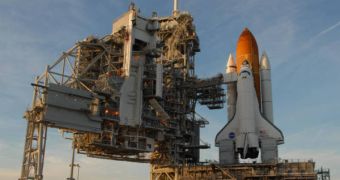This time, the main justification lawmakers turn to in order to ask NASA to postpone the retirement of the shuttle fleet is an economic one. Congressional delegations from Florida and Texas, two states that have been particularly affected by the economic crisis, say that when the space agency closes down the shuttle program in 2010, thousands of employees working at facilities in these states will lose their jobs. It's doubtful that this drive will find any echo in Washington, seeing how a Congress-created panel has recently endorsed NASA's view of the space program and the 2010 retirement deadline.
According to unofficial estimates, more than 30,000 jobs could be lost around the country when NASA shuts down the shuttle program and officially hands out its funds to the Constellation Project. Some 3,500 direct jobs will be lost at the Kennedy Space Center alone, with an additional 7,000 in the area around the facility. Plus, there are numerous other centers and universities around the United States that are involved in collecting and analyzing data related to the shuttles and their missions, as well as in elaborating reports and other such matters.
The reason why NASA pushes for the retirement of the shuttle is a very simple one, and it would appear that those advocating against this lose sight of it – the shuttles were constructed in the 1980s, and although they were originally planned to fly for more than 100 missions each, they have already begun to show signs of fatigue. None of the three operating shuttles – Atlantis, Endeavor and Discovery – have flown more than half of their alloted missions, but if space agency engineers say that they are no longer feasible, maybe state officials should listen to them.
The Aerospace Safety Advisory Panel, a structure formed by the Congress, concluded on Thursday that flights carried out aboard the shuttles after 2010 “not only would increase the risk to crews, but also could jeopardize” funding for NASA's future space programs. In the conclusion of its report, the Panel strongly supports the space agency's take on the space program, and says that the extension of the retirement deadline could have serious negative repercussions.
WSJ reports that state authorities from Florida and Texas tell that NASA should first finish the construction of the International Space Station, before moving on with Constellation. There are about nine more shuttle flights scheduled until the end of 2010, but the officials exlpain that others could be fitted into the launch schedule as well. The debates on the matter still rage on, but one thing's for sure – future flights after 2010 may be very hazardous to the astronauts aboard the shuttles.

 14 DAY TRIAL //
14 DAY TRIAL //